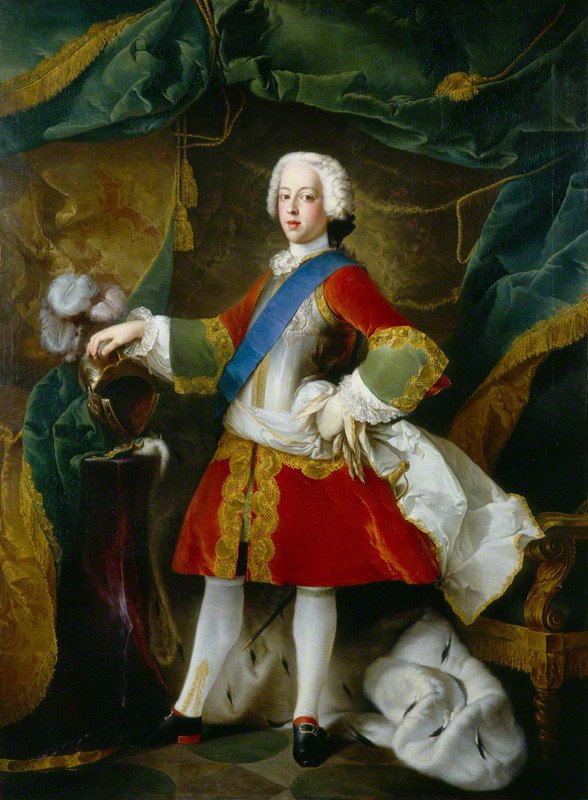Glasgow Green 1745 - 2016

The Scotsman reports that Bonnie Prince Charlie spent Christmas in Glasgow in 1745 and that the Prince summoned his Jacobite army to Glasgow Green.
All I can say is that I hoped they had better weather than all the wind and rain Glasgow Green is enjoying today.
Read more at: http://www.scotsman.com/news/bonnie-prince-charlie-s-christmas-in-glasgow-1-4325088
Bonnie Prince Charlie’s Christmas in Glasgow Charles

Charles Edwards Stuart, painted by Louis Gabriel Blanchet in 1738, arrived in Glasgow on Christmas Day 1745.
Bonnie Prince Charlie arrived in Glasgow on Christmas Day in 1745 but it was probably a festive season to forget for the young Chevalier.
Glasgow had broadly rejected the call to support the rebellion with the city having fared well under the Hanoverians. The Prince was later to complain he had never felt so without friends than when in the city, which was dominated by Presbyterians and Whigs. Although he was to enjoy hospitality at Shawfield Mansion, then considered Glasgow’s finest home which belonged to tobacco merchant James Glassford, he struggled to curry favour that Christmas, despite his connections.
Bonnie Prince Charlie and the passions of fine Edinburgh ladies Earlier, the town council had turned down a written request by Bonnie Prince Charlie to fund his mission to the tune of £15,000. Provost Buchanan informed Charles that support was not justified, given the antipathy of the citizens towards his cause with the city leader claiming he was more afraid of the Glasgow people than the largely Highlander army. A smaller offer was made in order to placate the Prince, who had become increasingly sullen given infighting and desertions on his recent expedition to England.
Bonnie Prince Charlie’s sword and shield go on show On arrival in Glasgow, Charles’s first job was to refit his men, who were in a “most pitable plight from the want of clothing,” according to Browne’s third volume of History of the Highlands (1852). “He ordered the magistrates to furnish the army with twelve thousand shirts, six thousand cloth coats, six thousand pairs of stockings and six thousand waistcoats,” Browne said. Despite clothing being made available, Charles was enraged that the citizens of Glasgow had subscribed to a fund for raising troops against him.
The Prince sent for Buchanan and demanded the names of those who had funded the opposition force. Buchanan was threatened with hanging if he did not comply - but the Provost stood firm in the face of the Chevalier. “The provost, undismayed, replied that he would name nobody except himself, that he had subscribed largely, as he thought he was discharging a duty, and he was not afraid to die in such a cause.”
Browne details the hospitality enjoyed by the Charles while in Glasgow. “While in Glasgow he ate twice a day in public. The table was spread in a small dining room, at which he sat down without cermony with a few of his officers in the Highland dress. “He was waited upon on these occasions by a few Jacobite ladies. “Charles courted popularity, and, to attract attention, dressed more elegantly in Glasgow that at any other place. “But the citizens of Glasgow kept up a reserve, which made Charles remark, with a feeling of mortal disappointment, that he had never been in a place where he found fewer friends.
“Though dissatisfied with the people, he seemed, however, greatly to admire the regularity and beauty of the buildings,” according to Browne. Charles summoned his army to Glasgow Green, which had camped close-by, to inspect his men, now clad in new clothes. Despite losing only 40 soldiers during his recent march into England, a expedition which included the siege of Carlisle, witnesses to the gathering recalled a rather downbeat Prince.
The witness account said: “He had a princely aspect, and its interest was much heightened by the dejection which appeared in his pale fair countenance and downcast eye. “He evidently wanted confidence in his cause, and seemed to have a melancholy foreboding of that disaster which soon after ruined the hopes of his family for ever.” Charles abandoned his plan to return to England and instead choose to march towards Stirling Castle. The Prince left Glasgow with his troops on January 4 - his decisive defeat at Culloden just three months away.

